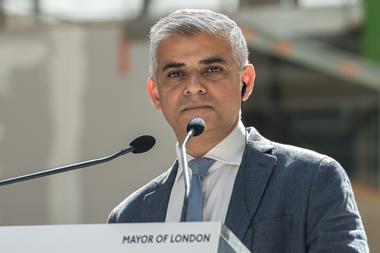A prime central London residence, perfect for hosting parties and recently redecorated at great expense, will soon be available for a new occupier. I’m talking, of course, about the prime minister’s flat in Downing Street.

As I write on Wednesday, the resignations of Rishi Sunak and Sajid Javid are still being dissected by political pundits and a number of junior ministers have quit, as has a roster of parliamentary private secretaries. Where other leaders might have felt compelled to admit defeat and resign, Boris Johnson ploughs bullishly onwards. He is, of course, determined to put these setbacks behind him and ‘move on’.
But will dogged determination carry Johnson through this time? It seems extraordinarily unlikely. A more probable outcome must surely be that the Conservative Party will find a way to oust him against his will, via the backbench 1922 Committee or by other necessary means.
For now, at least, we have a new chancellor in Nadhim Zahawi. He is surely an odds-on favourite for the title of shortest-serving chancellor in recent history, given that chancellors tend not to remain in post through a change of prime minister. Just as surely, Zahawi will come under extraordinary pressure to ease Johnson’s plight by flourishing some sort of fiscal top hat, from which to pull a dramatic tax cut out by the ears.
On his first morning in the job, the new chancellor was quizzed by the BBC’s Nick Robinson, who asked him if he believed tax cuts would worsen inflation, or ease inflation by getting the economy going again. Robinson suggested Sunak had embodied the first belief, and that Zahawi must have been appointed to believe the opposite.
Understandably, the chancellor did not give a straight answer, but did state that his priority would be fostering economic growth and that “nothing is off the table”.
He added: “I will review everything. I will be the evidence-led chancellor and, of course, my priority is to bear down on inflation.”
While we wait for Zahawi to gather evidence and make his moves, it’s worth pondering Robinson’s question. Is there a simple either/or link between tax cuts and inflation?
Naturally, reality is more nuanced. Tax cuts for families struggling to pay basic household bills are broadly conceded not to fuel inflation, for example, at least when compared to tax cuts for those already in the market for expensive luxuries. Similarly, cutting taxes for business is often argued to have a greater impact on growth than inflation. Though not everyone is wholly convinced.
We will see what emerges from Zahawi’s topper. His problem will be that the type of tax cuts most desperately wanted by Johnson – those that promise extra wealth for Tory voters – also happen to be most closely linked to inflation.
If Zahawi is really intent on being evidence-led, he is likely to have a fight on his hands, although he will be in a strong position to resist pressure from the PM. At this juncture, even Johnson could not hope to brush off a resignation from yet another chancellor of the exchequer.
Whether these tensions will play out before the whole house of cards collapses in Downing Street remains to be seen. By the time you read this, you’ll be wiser than me.





























No comments yet